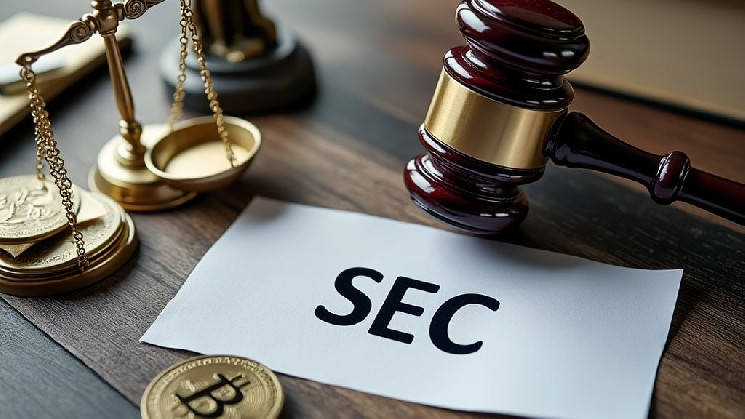Crypto exchange, Bitnomial, filed a lawsuit against the U.S. Securities and Exchange Commission (SEC), contesting the agency's classification of XRP as a security. Bitnomial filed the suit in an Illinois federal court, claiming that the SEC has overreached its jurisdiction regarding digital assets.
The exchange argues that XRP is already classified as a commodity under the Commodity Futures Trading Commission (CFTC), and thus should not fall under the SEC’s regulatory umbrella.
“Bitnomial disagrees with the SEC’s view that XRP is an investment contract and, therefore, a security, and that XRP Futures are thus security futures,” the company said in its lawsuit,” the exchange stated in its filing.
In August, Bitnomial received approval from the CFTC to trade crypto futures. Following this, they submitted a self-certification to list XRP futures contracts on their platform.
However, the SEC intervened, claiming that these futures were securities and that Bitnomial needed to register as a national securities exchange before proceeding.
Tensions Between the SEC and Crypto Firms
Bitnomial’s legal battle is part of a larger trend of escalating tensions between the SEC and various crypto entities. Recently, Crypto.com also initiated legal action against the SEC, claiming the agency overstepped its authority by labeling nearly all crypto transactions as securities.
Crypto(.)com argues that the SEC's lack of clear guidance creates an inconsistent regulatory framework that hampers legitimate business operations.
Ripple Labs, Binance, and Coinbase are among the prominent companies embroiled in legal disputes with the SEC.
In a recent statement, Luke Hoersten, CEO of Bitnomial, expressed confidence in their case. He emphasized that the unique nature of their lawsuit could set a legal precedent regarding the regulation of crypto derivatives, particularly XRP futures contracts.
“The SEC is determind to overstep their statutory authority and classify XRP futures and other digital asset futures as securities futures,” Hoersten wrote on X. “These products have oversight from the CFTC, but the SEC’s litigation keeps US traders a step behind global counterparts.”
SEC’s Broader Enforcement Actions
On the same day as Bitnomial's lawsuit, the SEC charged Cumberland with operating as an unregistered dealer since March 2018. The agency claims that Cumberland has engaged in buying and selling crypto assets deemed securities without proper registration.
Jorge G. Tenreiro, the acting chief of the SEC's crypto assets and cyber unit, stated:
“The federal securities laws require all dealers in all securities to register with the Commission, and those who operate in the crypto asset markets are no exception.”
In a statement to Reuters, Cumberland's spokesperson criticized the charges as "incredibly frustrating and disappointing," arguing that the SEC's regulatory framework lacks clarity and consistency.
Amid these developments, SEC Commissioner Mark Uyeda has publicly criticized the agency’s current approach to crypto regulation.
In a candid interview on Fox Business’s Mornings, he described the SEC's “policy through enforcement” as a disaster for the industry.
🚨BREAKING: The commissioner of the SEC - Mark Uyeda says: "I think our policies and our approach over the last several years have been just really a disaster for the whole industry!" #XRP
— JackTheRippler ©️ (@RippleXrpie) October 10, 2024
There are two options for Gary Gensler:
1. He will be fired.
2. He will resign. pic.twitter.com/LpcnBElKfU
“We’ve done nothing to provide guidance on it,” Uyeda noted, highlighting the lack of clear rules that govern cryptocurrency transactions.
 bsc.news
bsc.news
